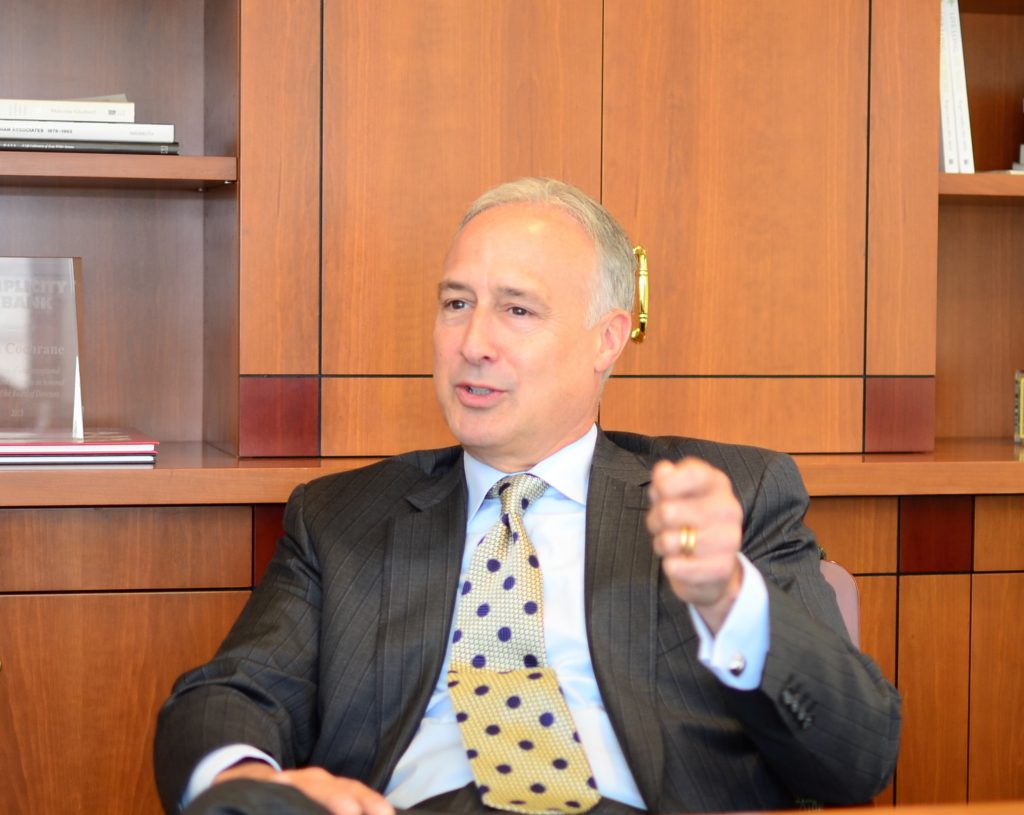HumanGood’s new affiliation with Presby’s Inspired Life serves dual purposes: creating an organization with national scale that could further expand, with a platform to create an offering for an overlooked segment of the middle market.
That platform revolves around the existing affordable housing portfolios of both companies, as well as the capabilities of HumanGood’s in-house development arm, HumanGood CEO John Cochrane told Senior Housing News. Even as it was working toward this affiliation, HumanGood has been upgrading its affordable housing portfolio over the past several months.
Cochrane calls HumanGood the dominant nonprofit senior living provider in the western U.S., serving close to 10,000 residents across 77 communities in California, Arizona, Nevada, Washington and Idaho. The company ranked seventh on the 2018 LeadingAge Ziegler 200 list of the largest nonprofit senior living providers in the country.
As HumanGood targeted new geographic regions, it wanted to affiliate with an organization that had the scale, staff and reputation to be a good partner. Philadelphia-based Presby’s was always at the top of HumanGood’s list.
[Middle-market] is not one size fits all.
HumanGood CEO John Cochrane
The provider operates 36 affordable senior housing communities and three life plan campuses in the metro Philadelphia area. Coupled with HumanGood’s 59 affordable communities, the Presby’s affiliation gives HumanGood a market-leading affordable housing presence, with the ability to grow as addressing the need for middle-market housing becomes a priority for developers and operators.
The affiliation also serves as a loud signal that HumanGood is not content being a regional powerhouse.
“We always articulated that we have national ambitions and aspirations as an organization,” he said.
A like-minded affiliation
Cochrane and Presby’s CEO Judee Bavaria stressed that there was no need to affiliate. But Bavaria is retiring at the end of June and Presby’s board decided finding a strong partner was essential for the firm’s future. Presby’s is in a strong financial position, and no jobs are expected to be lost with the affiliation, according to a document announcing the affiliation.
Presby’s did its due diligence with several organizations, narrowing its finalist list to three before moving forward with HumanGood.
“[HumanGood’s] mix of market rate and affordable housing worked well with our models,” Bavaria said.
To facilitate the transition, Bavaria will remain with Presby’s in a supporting role through the end of the year.
As for new markets, Philadelphia is just the beginning, Cochrane told SHN. The new entity would like to target infill East Coast markets adjacent to Philadelphia, and even has eyes on the Midwest.
HumanGood is not done pursuing growth via affiliation, and is looking for partners similar to Presby’s that enter negotiations with strong financial and operational metrics.
“[Nonprofits] should come together and move missions forward in a united manner, instead of [remain in the current] fractured environments,” Cochrane said. “To see it come to pass is exciting.”
Scaling up affordable housing development
Another factor in Presby’s decision to merge with HumanGood is its focus to expand middle-market and affordable senior living options, which has become a priority in the industry as baby boomers begin to age out of the workforce.
The middle-market dilemma is more complex than many providers recognize, Cochrane told SHN. He believes much of the conversation has been focused on the upper middle-market or “active adult light” independent living.
HumanGood wants to leverage its growing platform on developing low-income middle-market housing, which Cochrane believes presents the better opportunity for scale, as well as being the least-served segment of the middle-market demographic.
“[Middle-market] is not one size fits all,” he said.
HumanGood’s in-house developer, Beacon Development Group, will play a prominent role in the provider’s middle-market strategy moving forward, Ancel Romero, president of HumanGood’s affordable housing line, told SHN.
HumanGood first partnered with Beacon 15 years ago, as the provider made inroads into the Washington state affordable housing market. It contracted with Beacon to reposition older, HUD-financed properties for extended use and, later, as a co-developer for new developments.
HumanGood eventually bought Beacon in January 2015.
The firm has taken steps to meet the future demand for affordable senior housing recently. Last December, it opened the $40.5 million Rotary Terrace, an 81-unit residence for low-income seniors in San Francisco, in partnership with the South San Francisco Rotary Club.
In May, HumanGood debuted the newly renovated Park Paseo, an affordable senior community in Glendale, California. The renovations totaled $35 million.
Mount Rubidoux Manor, a 188-unit HumanGood affordable community in Riverside, California, also recently completed a $35 million renovation plan.
HumanGood is also working with task forces made up of HumanGood affordable housing-focused board members, key operations, resident services and development team members in drafting three strategic plans focused on advocating for senior living causes that are important to low-income seniors such as enhanced services and funding; enhancing its capacity to raise funds from foundations to benefit residents and communities; and exploring ways to provide housing and services for homeless seniors and elderly homeless veterans.
With the Presby’s affiliation nearing completion, Romero believes HumanGood will have the platform to advocate and successfully compete for the limited federal and state funding available to support development of new affordable senior housing.
“It gives us a louder voice and a bigger seat at the table,” he said.


